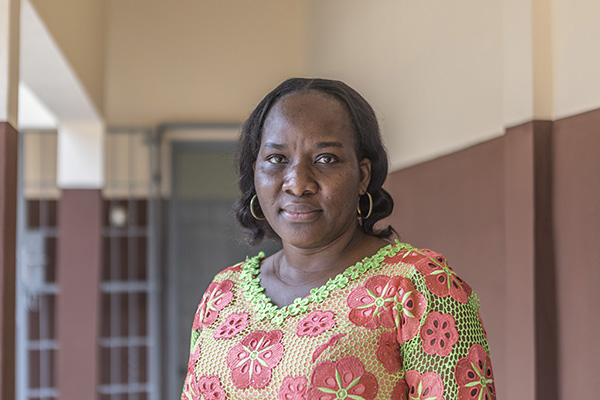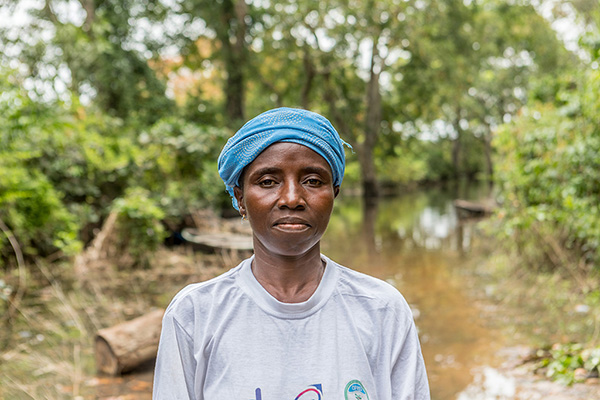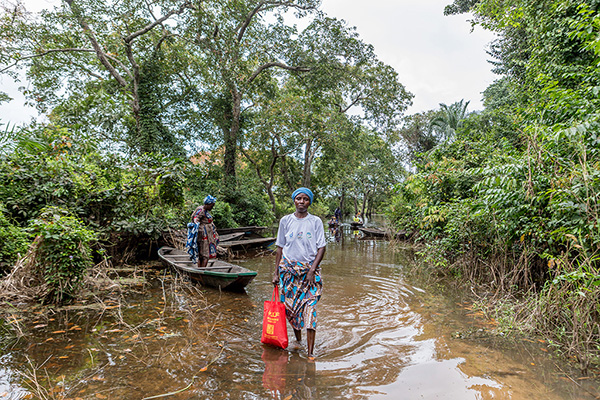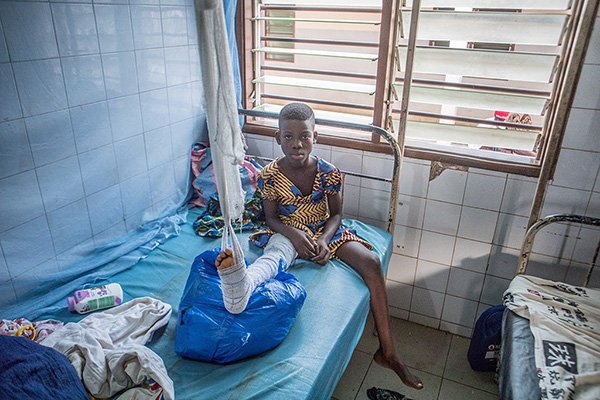Doctor Josiane Aze, Chief Physician at the Zè commune, Benin
“Training women is essential for reducing poverty and, therefore, the debilitating diseases transmitted in this environment”

Introduction:
We interviewed Doctor Josiane Aze, an epidemiologist and director of the community health centre in Zè, Benin. She spoke about the health situation in the community and the challenges it faces.


Anesvad Foundation:
What are the challenges faced by the health centre you currently manage?
Josiane Aze:
The first challenge the Zè health centre faces is the number of patients it receives. With the COVID-19 pandemic, diagnoses and treatments are carried out in the centre, but there is reluctancy among the population over a fear of testing positive. As a result, this panic has reduced the number of people who go to the centre in person and only serious cases come in.
The other challenge is finding the best ways to raise awareness to cause a behavioural change among the population. We have to highlight that these diseases exist, because there is a lot of denial and superstition.
Anesvad Foundation:
Ante estos retos, ¿Cómo ha vivido la pandemia la comunidad de Zè?
Josiane Aze:
The COVID-19 pandemic is a reality for the Zè community. Regrettably, although cases have been detected and treated, among the majority of the population there is denial related to the illness; the few people who do believe in it have either caught COVID-19 or someone close to them has. Despite radio and television campaigns and widespread awareness-raising, barrier measures have not been carried through, such as the use of face masks. Fake news stories have also done a lot of damage.
Anesvad Foundation:
In terms of non-communicable diseases, how has the pandemic affected the detection of cases, treatment, and the monitoring of the patients infected with these diseases?
Josiane Aze:
The staff in health centres who detect NTDs mobilised to respond to COVID-19. Due to an excessive workload and a lack of staff, the active search for cases of NTDs has dropped. Furthermore, the fact that the population no longer goes to health centres to get minor illnesses treated means that sometimes NTDs go under the radar.
Anesvad Foundation:
How many health centres does the Zè community have? To detect and treat NTDs, do people need to go to their community centre?
Josiane Aze:
In the Zè municipality there are ten health centres. With the support of organisations like Anesvad all medical and paramedical staff in these ten centres have received training on detecting and treating NTDs, and on procedures for referring serious cases to the Allada centre. Refresher sessions are organised periodically to keep them up to speed.
Anesvad Foundation:
How do you see the situation for women in the community and what is the impact of the empowerment project we are developing?
Josiane Aze:
Women from Zè, and all women living in rural areas, have very limited spending power and decision-making capacity. Therefore, they are victims of diseases linked to poverty and a lack of hygiene and sanitation in their environment. In the Zè commune we have been lucky enough to have the WASH project, which has enabled us to make numerous boreholes available, raise awareness of hygiene and improve sanitation. We have also been able to train groups of women to learn about income-generating activities such as producing soap and managing crops and livestock.
These actions have led to less outdoor defecation and a change in behaviour, particularly in relation to hand-washing in schools and homes. Today, the water consumed by the population comes from a better source, which in turn has helped lower the prevalence of diseases related to the lack of water and hygiene.




